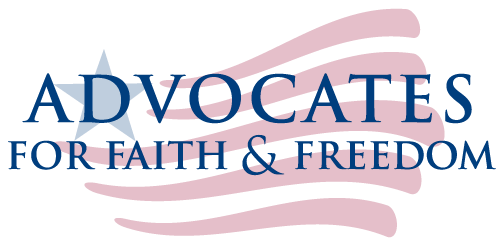Is reading the Bible aloud in public “illegal?”
You may recall that in 2013, we defended two men who were arrested by a CHP officer because they were reading the Bible aloud in a DMV parking lot. The men were arrested for “obstructing or intimidating persons there to transact business” with the DMV. The District Attorney’s  Office prosecuted our clients for a misdemeanor. However, we were victorious at trial and our clients were found to be innocent of the charges.
Office prosecuted our clients for a misdemeanor. However, we were victorious at trial and our clients were found to be innocent of the charges.
This entire case was based on two police reports written by the arresting CHP officer who fabricated events to justify the arrest. Thankfully, video recordings provide the truth. We offered the CHP the opportunity to avoid a federal lawsuit by admitting the arrest was unlawful and agreeing to properly instruct its officers. We filed a federal lawsuit for unlawful arrest in federal court after the CHP rejected our proposal. The federal district judge ignored the video evidence and ruled for the CHP. We then filed an appeal to the Ninth Circuit Federal Court of Appeal.
We appeared for oral arguments in the Ninth Circuit before a three-judge panel on December 9, 2016. The decision from the Ninth Circuit should come sometime next year. Please pray for God’s divine wisdom and guidance as we proceed in this case.
Is it “illegal” to allow invocations at school board meetings?
The Freedom From Religion Foundation is aggressively pushing its agenda. They sued the Chino Valley Unified School District because it allowed a pastor or religious leader to open each school board meeting with an invocation. After a federal district court judge declared the invocations to be unconstitutional, the School District asked us to appeal their case to the Ninth Circuit and to take over their defense.
The so-called “separation of church and state” does not exist in the Constitution, but has been used in an attempt to eliminate all influence of a Christian worldview in our government. We will defend the school district all the way to the U.S. Supreme Court if needed so that our leaders can properly begin their meetings with reverence for God and recognize their moral responsibility in government.
The outcome of this case will impact the judiciary nationally and will likely be binding on all of the nine states under the Ninth Circuit’s jurisdiction and more than 60,000,000 residents. Prayers have been offered at the beginning of legislative meetings since the founding of our country. The U.S. Supreme Court has upheld the practice in state legislative meetings and city council meetings.
Is it “legal” to force all Christian pregnancy counseling centers to give abortion referrals?
This is precisely the question we were asked by our client, Pastor Scott Scharpen, the president of Go Mobile for Life—a nonprofit crisis pregnancy counseling center that operates a mobile medical clinic providing free ultrasounds.
 The State of California recently enacted a new law that requires pregnancy counseling centers to give their clients a notice that “California has public programs that provide immediate free or low-cost access to comprehensive family planning services (including all FDA-approved methods of contraception), prenatal care, and abortion for eligible women.” The notice must also include the phone number to the county social services office where abortion information can be obtained. The abortion notice must be posted in a conspicuous place within the waiting room or personally delivered to each patient.
The State of California recently enacted a new law that requires pregnancy counseling centers to give their clients a notice that “California has public programs that provide immediate free or low-cost access to comprehensive family planning services (including all FDA-approved methods of contraception), prenatal care, and abortion for eligible women.” The notice must also include the phone number to the county social services office where abortion information can be obtained. The abortion notice must be posted in a conspicuous place within the waiting room or personally delivered to each patient.
Although there are some exemptions to the law, they appear to apply to Planned Parenthood and other abortion providers, but there is no exemption for religiously-based counseling centers.
We partnered with our friends at American Center for Law and Justice and filed a lawsuit on behalf of Go Mobile for Life in California state court where we are presently in active litigation and conducting depositions. We also filed a federal lawsuit on behalf of Livingwell Medical Clinic in northern California. After the initial three-judge panel in the Ninth Circuit denied our request for a preliminary injunction, we filed a petition “en banc” wherein we are requesting all of the judges in the Ninth Circuit to vote on whether an eleven-judge panel should be appointed to rehear the case.
As you can see, we are extremely busy preparing and strategizing on these three cases, as well as many others. We certainly appreciate your prayers and any contributions you can offer to assist us as we take a stand in the courts.
